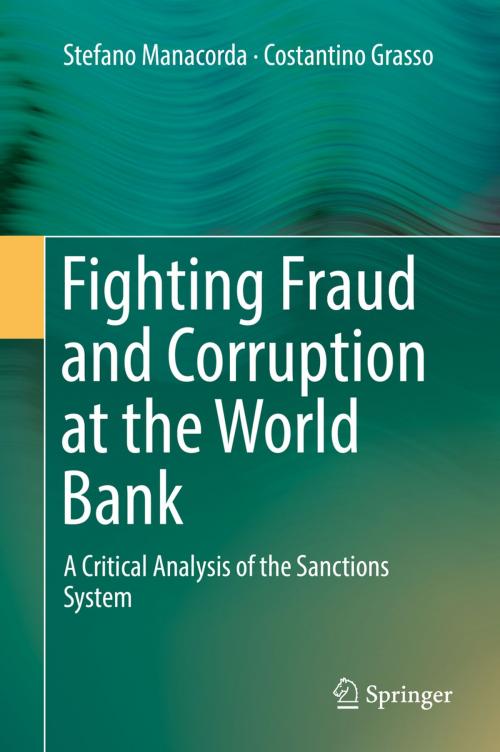Fighting Fraud and Corruption at the World Bank
A Critical Analysis of the Sanctions System
Nonfiction, Reference & Language, Law, International, Business & Finance, Economics, International Economics| Author: | Stefano Manacorda, Costantino Grasso | ISBN: | 9783319738246 |
| Publisher: | Springer International Publishing | Publication: | May 4, 2018 |
| Imprint: | Springer | Language: | English |
| Author: | Stefano Manacorda, Costantino Grasso |
| ISBN: | 9783319738246 |
| Publisher: | Springer International Publishing |
| Publication: | May 4, 2018 |
| Imprint: | Springer |
| Language: | English |
This book focuses on the World Bank’s sanctions system, which is an innovative instrument of global governance implemented by the leading multilateral development bank in order to impose penalties on legal entities and individuals that are involved in Bank-financed projects. Although similar regimes have also been implemented by other regional multilateral development banks, the World Bank’s legal framework is currently the most comprehensive one.
The book offers a rich and detailed analysis of the sanctions system, presenting an in-depth examination of all the phases of its procedure with a special focus on key aspects such as the criteria for assigning liability to legal entities and corporate groups, as well as the World Bank’s jurisdictional reach over non-contractors. The book also explores the compatibility between the legal framework implemented by the Bank and the rule of law, the role of precedents, and the level of due process. It highlights the fact that the sanctions system is currently characterized by a lack of legal guarantees, and that there are compelling reasons for supporting the argument that due process safeguards should be applied to it in their entirety. To that end, the book conducts a thorough analysis of specific procedural aspects such as the right to a hearing, the right to evidence disclosure, the time limit regime, the standard of proof and shift of the burden of proof, the evidential value of a party’s silence, and the consistency and predictability of the World Bank’s sentencing practice. The study is conducted on the basis of a detailed and painstaking examination of the most relevant decisions taken by the Sanctions Board, providing the first-ever commentary on the World Bank’s case law.
This book focuses on the World Bank’s sanctions system, which is an innovative instrument of global governance implemented by the leading multilateral development bank in order to impose penalties on legal entities and individuals that are involved in Bank-financed projects. Although similar regimes have also been implemented by other regional multilateral development banks, the World Bank’s legal framework is currently the most comprehensive one.
The book offers a rich and detailed analysis of the sanctions system, presenting an in-depth examination of all the phases of its procedure with a special focus on key aspects such as the criteria for assigning liability to legal entities and corporate groups, as well as the World Bank’s jurisdictional reach over non-contractors. The book also explores the compatibility between the legal framework implemented by the Bank and the rule of law, the role of precedents, and the level of due process. It highlights the fact that the sanctions system is currently characterized by a lack of legal guarantees, and that there are compelling reasons for supporting the argument that due process safeguards should be applied to it in their entirety. To that end, the book conducts a thorough analysis of specific procedural aspects such as the right to a hearing, the right to evidence disclosure, the time limit regime, the standard of proof and shift of the burden of proof, the evidential value of a party’s silence, and the consistency and predictability of the World Bank’s sentencing practice. The study is conducted on the basis of a detailed and painstaking examination of the most relevant decisions taken by the Sanctions Board, providing the first-ever commentary on the World Bank’s case law.















